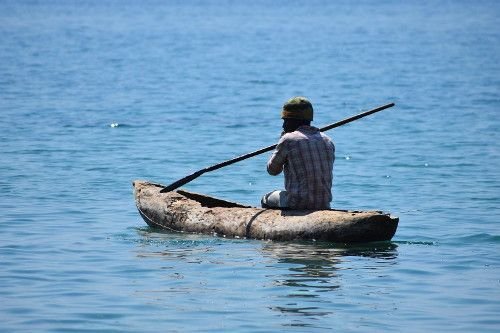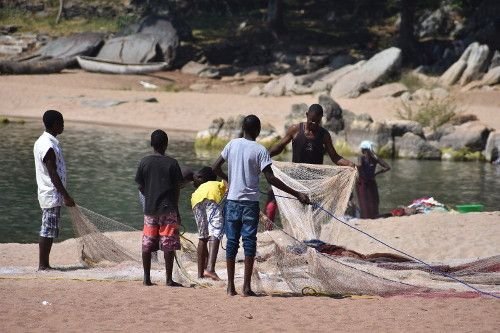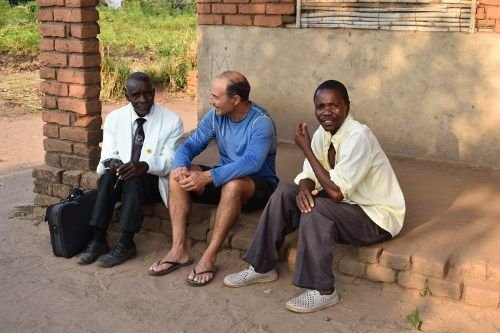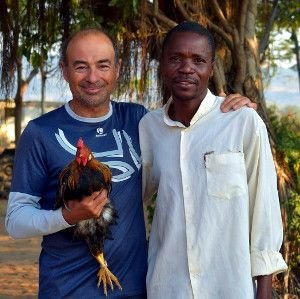Remember that the person who speaks here is NOT me, Vincent Celier (@vcelier), but @terresco, a French guy.
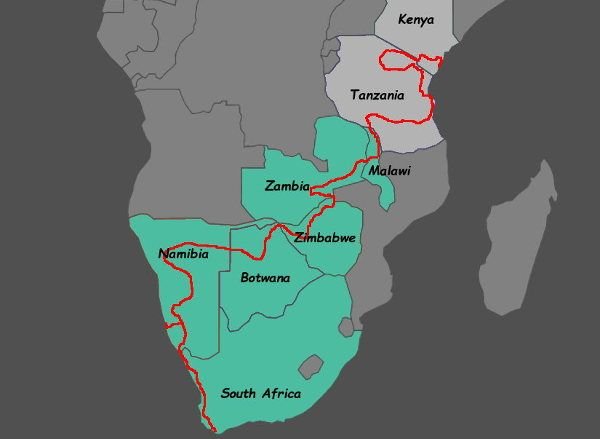
You do not come to Malawi for big African animals, except for some shy crocodiles, there are none. You come for the lake, a real inland sea whose shores evoke the seaside resorts of the 60s. People come for the model of kindness, integrity and selfless hospitality, surprising for such a poor population. Malawi is indeed among the most disadvantaged countries on the planet according to all international indicators.
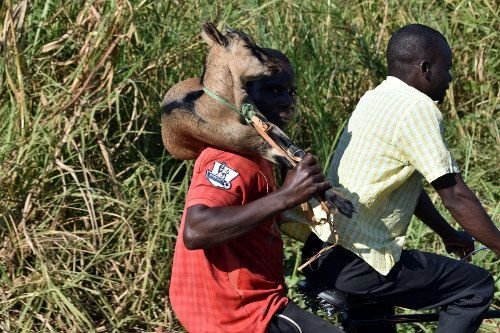 Goat ecological transport company
Goat ecological transport companyThere is very little tourism in Malawi, what it has to offer is less spectacular than its neighbors, no way to make beautiful pictures of elephants or hippos to make friends laugh on the way back, or to vibrate at roar of the lion on full moon nights. Malawi offers her heart, immediately, it lets you penetrate into its daily life, a hard life filled with simple pleasures.
* * * * *
The beaches of the lake
All in length, the country is covered with high plateaux often more than 2000m above sea level, the highest point being 3000m. These are places of absolute nature, another end of the world where tea and tobacco are grown. Yet it is towards the lake that we naturally converge. In this depression formed by the Great Rift that crosses the country from north to south, lays lazily the third largest lake in Africa, just after Tanganyika. Almost 600 km long and 50 wide, with a maximum depth of 750m.
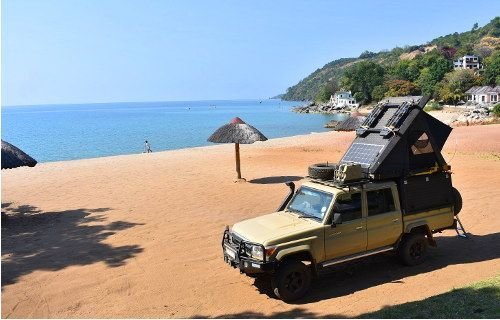
After almost two months of dusty trails from South Africa and the deserts of Namibia, imagine the pleasure of a swim in the incredibly transparent waters of the lake. Wide enough not to see the shores of Mozambique on the other side, we imagine that we are on a Mediterranean beach until we discover that the water is not slated. Through the clear water we can see multicolored fish that are found in European aquariums. We installed our house, first of many beaches that we will serve as a room these days. We share some beers and good stories with the neighbors between bathing.
Fishing
The shores of the lake are cultivated, a lot of maize and cassava, and of course there is intense fishing activity. I guess the type of fishing and fish depends on the seasons, when we stayed there it was the time of fishing "Sipa" (transcribed by me in phonetic). These are very small fish that will be used in sauces and are an animal protein base in the region. It is an entire economic sector that is being implemented.
The fishing takes place at night, departure around midnight for the middle of the lake in a boat or a canoe. As equipment, two small canoes dug in trunks, a car battery and a used pot lid equipped with powerful LED bulbs that give a white light, strong enough to attract fish, finally a large net with very fine mesh. Arrived on site, the canoes are put in the water, they will be used to circumvent the school of fish which, attracted by the white light of the surface, will pay dear its curiosity. Return at break of day, cold and tired. Fishermen are very much awaited on the beach, owner of the canoe, fish sellers, private or simple curious.
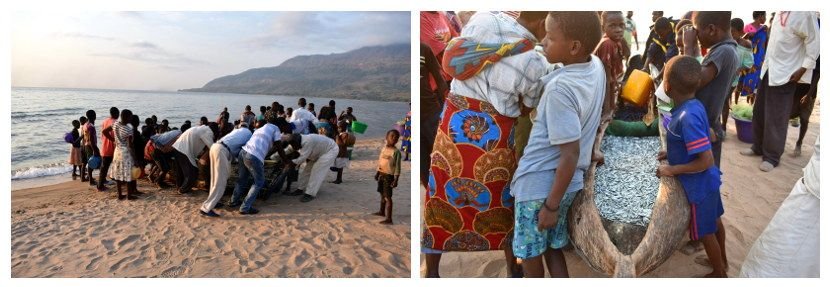
Everyone helps to pull the boat in the dry and it is positioned for the sale that will follow
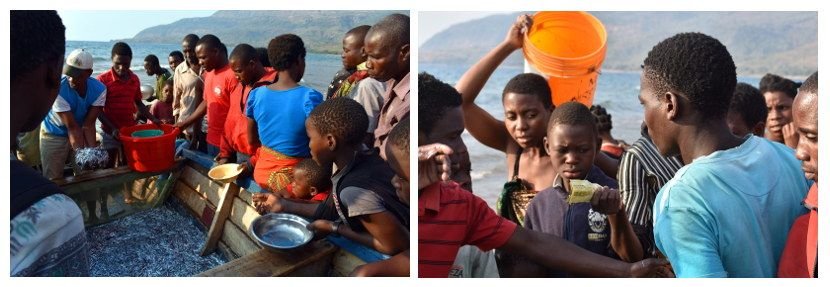
Plates for individuals, buckets for resellers. Bank notes and fish change hands quickly.
The sale takes place immediately after the canoe landed. On days when there are many fish the surplus will be put to dry on wooden porticoes installed on the beach. They will then be sold dry on the markets to be added to sauces, sort of locally made Maggi cubes. There is always some bottom of the plate for some old people who, I suppose, are without resources.
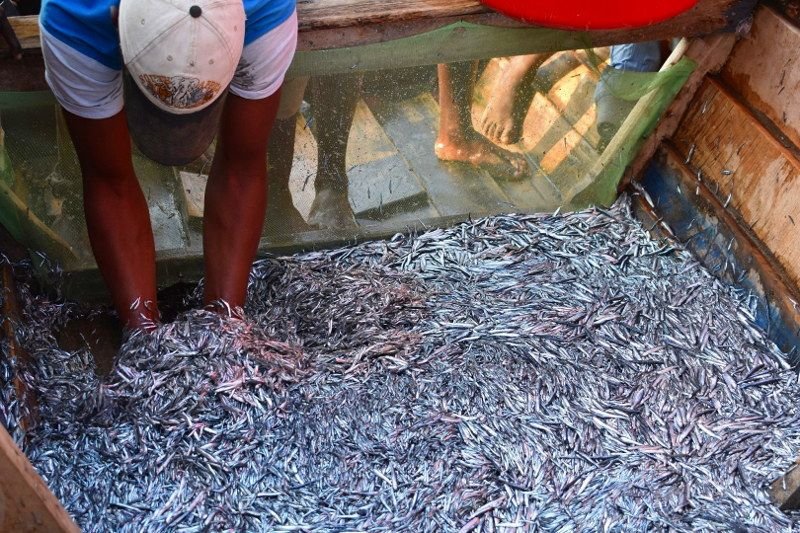
People
Not happy to have made me discover the fishing circuit, my new friend, Goodness is his name, invites us to visit his house. We taste the Nsima, a dish made from corn flour that looks like a puree. We are introduced to his father on this occasion and we discover the life of these simple people, poor but happy to live. Only concerned about basic needs. When I wanted to leave a small compensation for the meal, they absolutely refused; poor and generous.
Back at the car, accompanied by our host, I gave him a shirt for his father. Used shirt, to my shame, but I had nothing better. We left early the next day because the Tanzanian border was waiting for us. What was my surprise at awakening to find Goodness waiting for me to offer me one of his most beautiful chickens.
* * * * *
Poor and generous Malawi, new friends we leave with tears in our eyes, in those moments when we wonder why we always have to leave. A little gas and a phone call, we head for the border for new adventures.
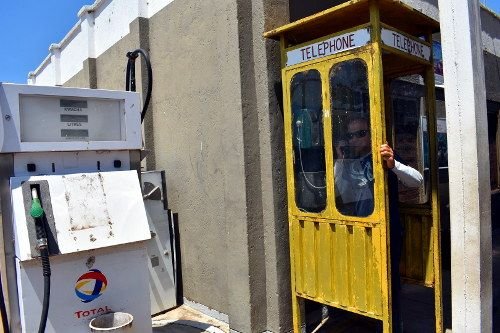
-- @terresco
Africa, the long crossing
From Cape Town to Mombasa: South Africa
From Cape Town to Mombasa: Namibia
From Cape Town to Mombasa: Botswana
From Cape Town to Mombasa: Zimbabwe
From Cape Town to Mombasa: Zimbabwe, part 2, by @terresco
From Cape Town to Mombasa: Zimbabwe, part 3, by @terresco
From Cape Town to Mombasa: Zambia, by @terresco
All pictures are property of @terresco


